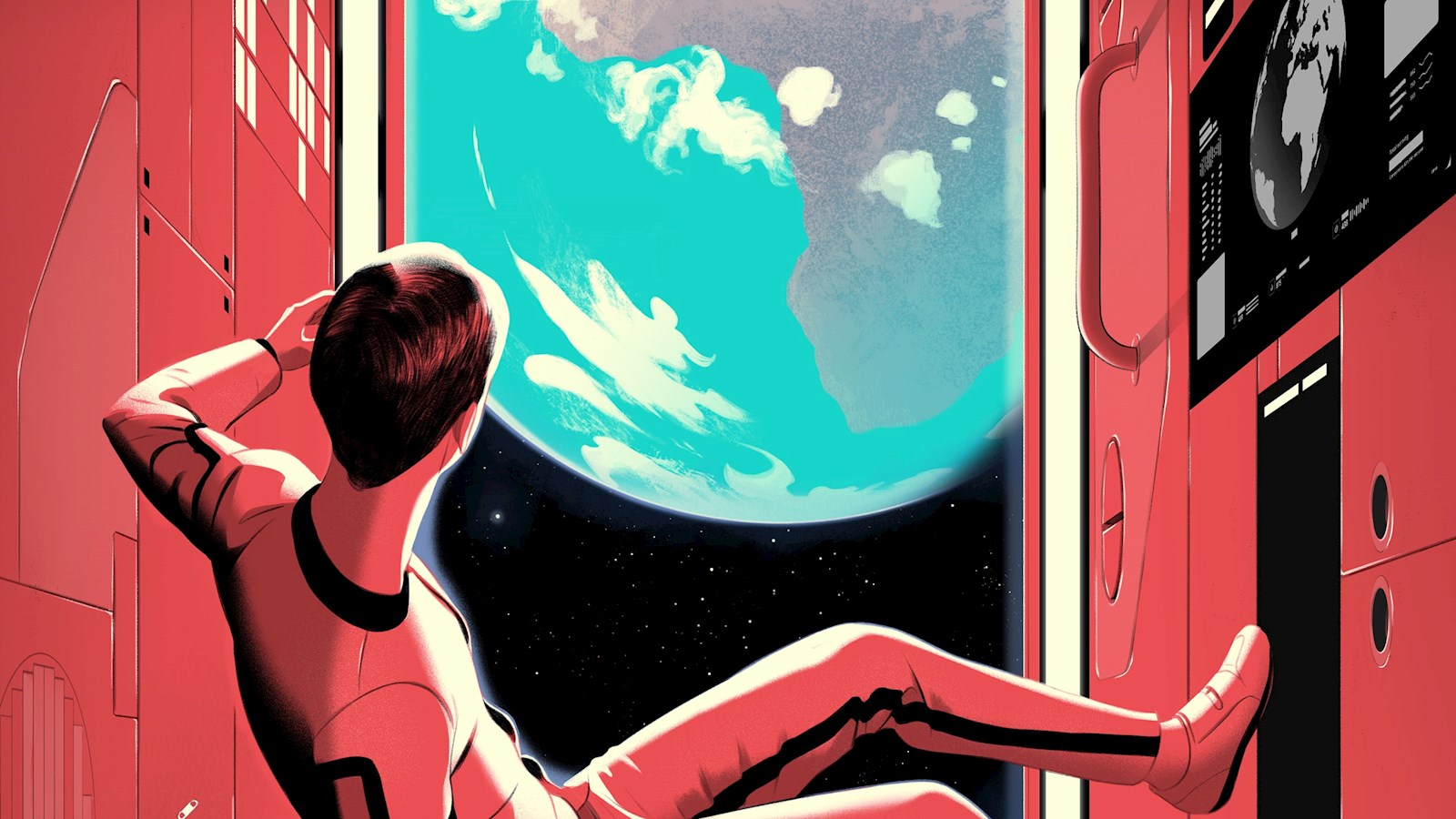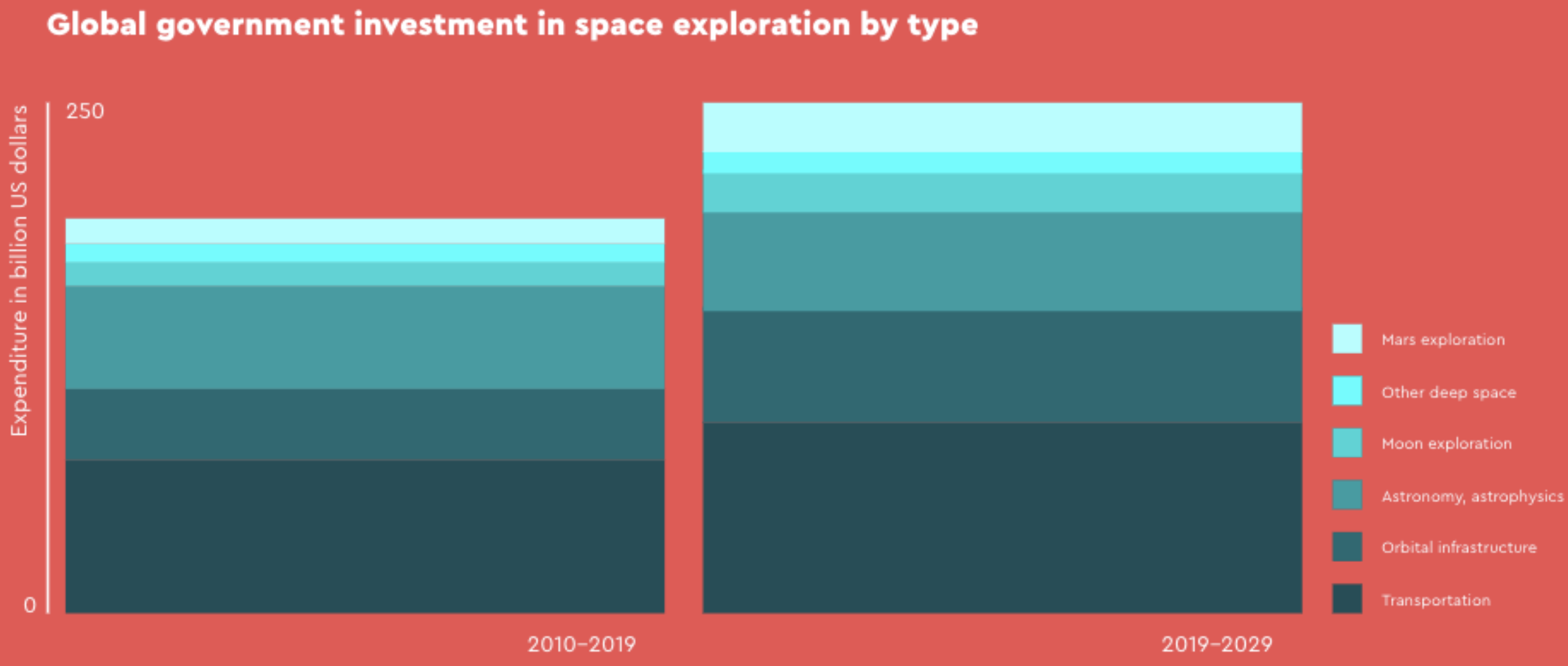
Space opportunities take off
Space exploration is no longer the stuff of sci-fi. It is happening right now and offers endless opportunities for brands with the vision to climb aboard
Have you looked up at the sky lately?
Since the beginning of time, humans have studied the heavens, each seeing something different: their gods and myths; ways to measure time; a map to new paths. There were two distinct elements: us and ‘that immense thing up there’ that was far away, untouchable. Nowadays, it’s different. It’s something we can reach, and explore. A place where we can make things happen, like on Earth.
New possibilities
This is not sci-fi. It’s reality. A large number of space exploration projects are happening right now, and new ones are yet to come. And where there are projects, there are needs and possibilities. Many brands have already grabbed at such possibilities, investing in and supporting space exploration, with projects and campaigns that have increased their business and enlarged their reach.
Ogilvy Consulting has created Orbiter to help brands to interface with the many possibilities generated by this new space economy – new forms of investment, new targets and values, new stories to tell: all waiting for those brands brave enough to turn space into their own possibility.
It’s a journey to a new era, but also a journey inside your own brand. It’s a reframe of your present and future. But if it’s so full of promise, why hasn’t it been seriously considered by other brands? Answering that question is the first purpose of this paper.
Every time we talk about space exploration, it seems we are talking about something far away from us, in a sort of utopic future. That’s why a lot of brands haven’t considered it. So, it’s very important that the first thing we do is to refute the common prejudice that space exploration is about the future and convince you that it’s happening now.
Bringing space closer
The human mind has its own way of working and, as behavioural science teaches us, there are common behaviours – biases – that rule it. At least two encourage us to think about space as something far away:
- Procrastination bias: when it comes to making decisions, our brain places a higher value on reaping immediate rewards than it does on future ones, what scientists call a battle between your present and future self;
- Presentism: our mind not only makes our present self win; it defines ‘real’ as only being the things that exist here and now.
The solution to overcoming these biases is what behavioural science calls framing: showing how the prejudices at the foundation of a bias are false. The first step to overcoming your biases is to appreciate how much space exploration is already happening right now.
We all know about the Apollo missions and the first space race during the 60s and 70s. At that time, everybody thought about space: it was radically new and part of that not-so-silent competition among nations known as the Cold War. Nowadays, space exploration is certainly less noisy and it’s probably this lack of competition that makes it look less mainstream and more strictly scientific.
However, right now, many space exploration projects are sprouting, and with them a series of concrete needs. Just one example is NASA’s Artemis mission which plans to reach the Moon by 2024. It has awarded multi-million dollar contracts to three private companies to develop lunar landers for its astronauts: Jeff Bezos’ Blue Origin, Elon Musk’s SpaceX and Alabama-based Dynetics. Other current missions include this year’s stationing of the Hubble Space Observatory in outer space and the 2022 launch of a European Space Agency spacecraft en route for one of Jupiter’s moons.
The new Industrial Revolution
These missions are happening now because of recent strides in technology, such as cognitive computing, IoT, machine2machine, 3D printing and advanced robotics. We are in the middle of the fourth industrial revolution, which heralds not just technological advances but also a significant reduction in the cost of space exploration.
Two technologies that have slashed costs are:
- Reusable rockets: SpaceX’s reusable Falcon 9s have significantly cut the price of access to space, partly through economies of scale;
- Miniaturised satellites: shoebox-sized CubeSats are much easier and less expensive to launch than traditional satellites.

As a result of this technological revolution, space exploration has become a fundamental element in many countries’ economies. And this is set to grow; Simonetta di Pippo, Director of the United Nations Office for Outer Space Affairs (UNOOSA), predicts that the space economy will be worth $3 trillion in 2040.
Endless possibilities
Space exploration for brands is a frame: an unexplored area where they can find new and original ways to express themselves. Each brand that moves into this frame starts a unique journey in an endless world of possibilities, opening up new opportunities, audiences, hopes and narratives.
- New opportunities: Your brand could be the answer to some of the manifold needs arising from the rise in space exploration projects. Look at what you have and who you are, and think of your product at the service of space exploration: IBM is about computer science, so is creating an AI bot to assist and converse with astronauts on the International Space Station; Audi produces vehicles, so is making its first, all-electric, lunar rover.
- New audiences: Brands on a space journey attract the interest of more people. Space exploration has never been so popular with, for example, NASA having 65 million Instagram followers, 20 million more than Lady Gaga. Space is not just attracting interest due to its age-old fascination, but because it fits the Consumer 4.0 generation, which makes purchasing choices based on a new value system. People now believe less in what companies promote, and more in the values they support. Space exploration is a compendium of peerless values and insights: it’s about humanity, new borders, collaboration and equality. As such, it moves the hearts of large sections of the online population.
Some brands are already part of it. In 2012, for example, Red Bull established its product purpose of supporting people in adrenaline-filled activities when it promoted Austrian skydiver Feliz Baumgartner’s freefall from the stratosphere. The live broadcast was viewed on YouTube by more than 9.5 million users, the platform’s highest-ever level of live stream views. And in 2020, Nokia made history when it was selected by NASA to install the first 4G network on the Moon.
- New hopes: Possibilities lead to hope, so – unsurprisingly – space exploration has become one of our main sources of optimism. Space makes people think which, once again, makes it a perfect frame to catch the interest of big audiences. It is a fertile ground for brands that talk about such topics as sustainability, inclusion and wellbeing. Moreover, space offers a unique perspective to approach these topics. When studying or experiencing space, everybody experiences what behavioural science calls an ‘overview effect’; when we see the Earth from the outside as a whole, with no national borders, our idea of the planet and our role on it is transformed.
– Sustainability
If we are in danger today, coming generations will be even more compromised, with the advance of climate change and with Covid-19 having increased social and economic crises worldwide. In this context, the new space economy presents hope to present and future mankind, because it is based on reusability, thanks to SpaceX, and so able to preserve the Earth and limit space pollution. Similarly, exploration of Mars prompts hope as – with it being the most similar planet to Earth – it provides a living lesson on how to preserve our world.
– Inclusion
There has been much progress in gender equality in space since the all-male astronaut Apollo missions. Women now represent around 22% of the industry and UNOOSA’s Space4Women project is raising awareness about career opportunities for women and the importance of gender equality and empowerment in the sector.
– Wellbeing
Space travel brings home a huge amount of knowledge that helps us to better understand ourselves and improve life on Earth. Wearables, digital health, AI, bioplastic and bioengineering are all improving thanks to space travel. Exciting ongoing examples include the tissue chip initiative, a study of the role of microgravity on humans that aims to improve health on Earth, and work with CRISPR technology to create a new species adapted to conditions on Mars.
LEGO® is one brand already exploring the new hopes of space, with a series of space exploration sets. One is dedicated to famous women who have worked with NASA: from astronauts to mathematicians. Another is SodaStream, which recently released a short film featuring a group of astronauts who turn water on Mars. into mineral water. The light-hearted movie’s finale captures SodaStream’s fight against plastic pollution, so we won’t have to find a new home on another planet.
- New narratives: From the Star Wars saga to Christopher Nolan’s Interstellar, space is one of our most important sources of inspiration. Netflix, for instance, has explored science fiction many times, with its recent comedy series Space force based on the US Army’s space exploration division. Mission: Impossible star Tom Cruise is, meanwhile, shooting clips for a new movie in outer space.
- New opportunities: The new space economy is happening right now. As well as moving enormous capital, it needs the support and creativity of all sorts of companies. Some of the world’s most famous brands are already using space as a way to find new opportunities, audiences, hopes and narratives.
Will you just keep looking up at the sky, or are you going to reach it? You won’t be alone.
published on
15 December 2021
Category
More in The Atticus Journal

Generative AI: mitigating risk to unlock opportunity
H+K’s Allison Spray on managing the commercial and reputational risks that the proliferation of generative AI will present

Making sustainability profitable
Sustainability investments must deliver returns – both financial and reputational – to be ‘sustainable’ for business. Something needs to change, says Luc Speisser

Sustainability comms must get real
There’s a disconnect between the way corporations talk about climate change and how the public discusses the same issue. That’s the conclusion of research by Jamie Hamill, Alessia Calcabrini and Alex Kibblewhite.
